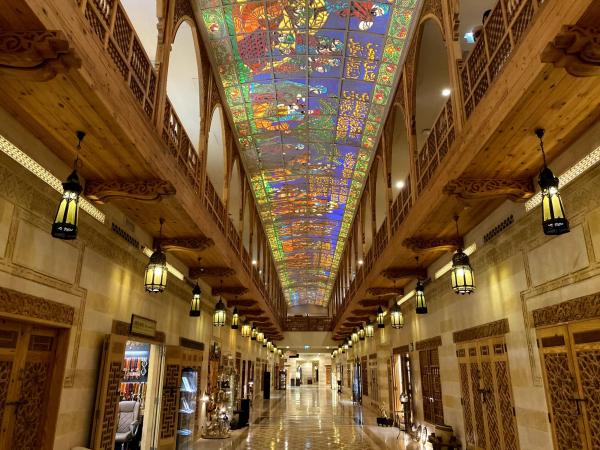
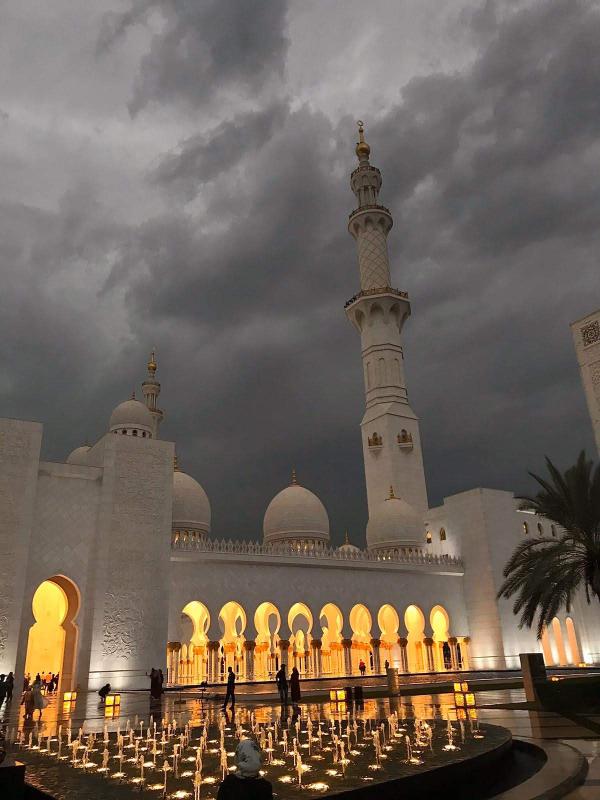
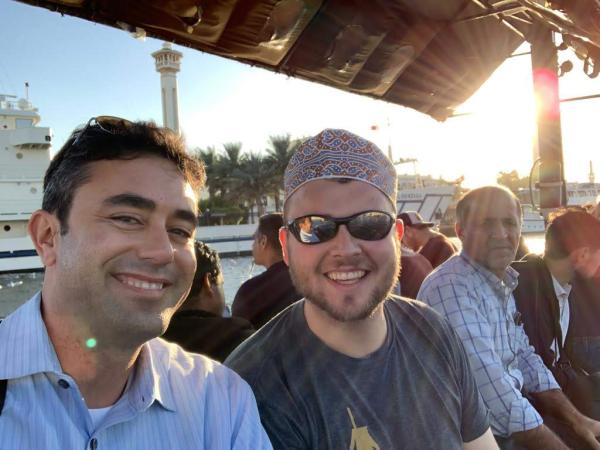
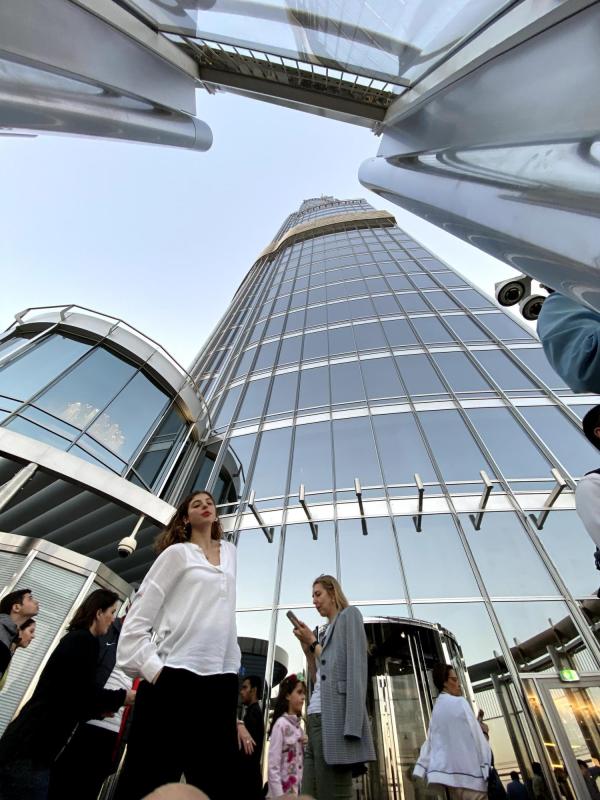
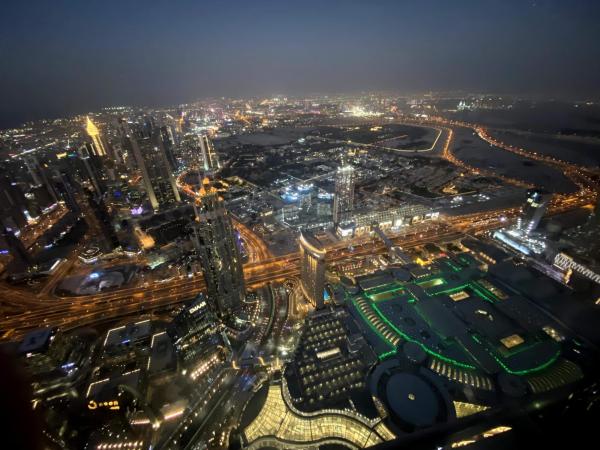
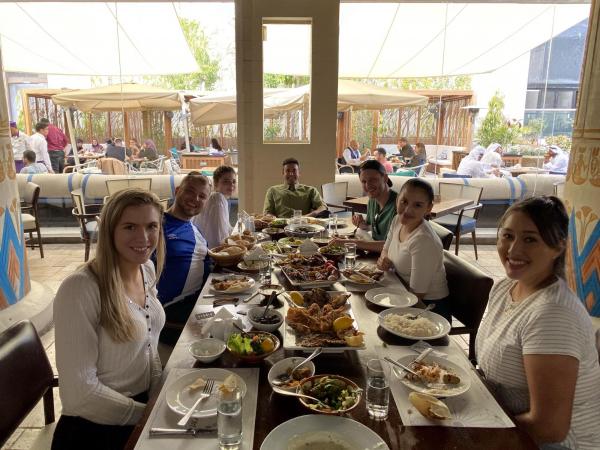
Dubai: City of Dreams, led by Dr. Hamilton Bean, is a new Winterim course that studies the intersecting forces of commerce, modernity, and identity in the United Arab Emirates. Dubai is one of the most unique cities in the world because over 90% of its population is non-Emirati, which creates interesting economic, political, and social dynamics. Emiratis have opened their doors to the world and Dubai has become a leader in trade, tourism, and services. Throughout the course, we learned about Dubai, from its early days as a fishing village, through key decisions that its leaders made in the 20th century, up to today’s focus on technology and innovation. As we learned about the city and its rapid development, we critically analyzed the interrelationships among national and cultural identities, sites of commerce and exchange, and the balance between tradition and modernity. Dubai is a one-of-a-kind city that is awe-inspiring to study.
Dubai’s not a perfect city by any means, and this course highlighted its challenges. There is an almost complete disregard for sustainability. Dubai is a city of excess and breaking boundaries, which is something that many consider a great achievement. Buildings are big and the AC systems are bigger. The Burj Khalifa (the tallest building in the world), which we visited, uses about as much energy as a small city. We also took on the challenge of debating the authenticity of cultural sites, many of which are found within or alongside malls that are obviously designed to sell commodities to locals and tourists. We questioned whether it is possible to consider malls valuable cultural sites. On that same note, we visited the Sheik Zayed Grand Mosque in Abu Dhabi. It is a beautiful structure, and many Emiratis are very proud of it. However, it also has a shopping section designed to appeal to visitors and tourists. Finally, the Wafi Mall in Dubai raised questions about whether it is an authentic cultural spot. In my opinion, it is. I argue that because even though the mall is fabricated, one of our course texts talks about how important the mall is for reflection and education. When we are arguing about whether a site is authentic or valuable, we must ask ourselves if we learned something new.
